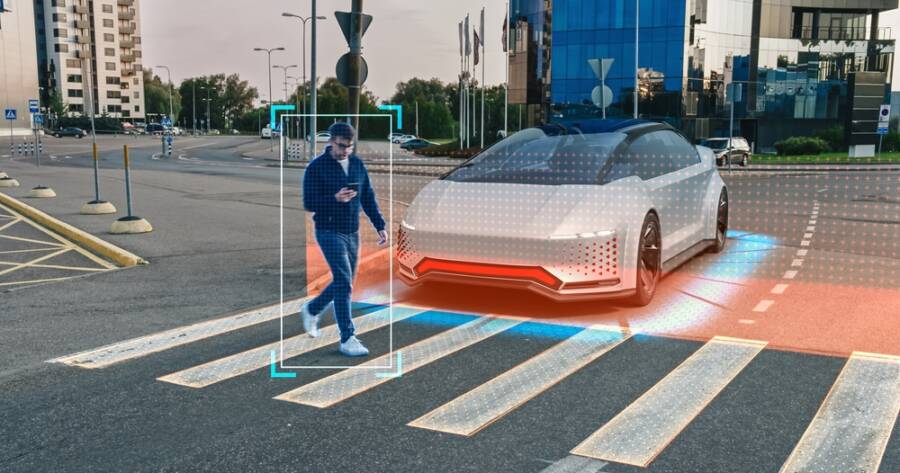Self-driving cars are reshaping the way people move by combining advanced sensors, real-time mapping, and powerful onboard computing. Innovative vehicles can monitor surroundings, react to changing conditions, and make driving decisions with increasing accuracy. As the technology improves, it promises safer travel, reduced traffic stress, and greater mobility for people who cannot drive on their own. With continued development, autonomous vehicles are positioned to transform daily transportation in major ways.
What Are Self-Driving Cars?
Self-driving cars, also known as autonomous vehicles, are vehicles that can operate without human intervention. They use a variety of sensors, cameras, and artificial intelligence to navigate the roads and avoid obstacles. Self-driving cars have the potential to revolutionize transportation, making it safer, more efficient, and more accessible.
There are several levels of self-driving car technology. Level 1 self-driving cars have some automated features, such as lane-keeping assist and adaptive cruise control. Level 2 self-driving cars can control the car’s speed and steering, but the driver must still be ready to take over at any time. Level 3 self-driving cars can drive themselves in most situations, but the driver must still be able to take over if necessary. Level 4 self-driving cars can drive themselves in all situations, but the driver must still be present in the car. Level 5 self-driving cars can drive themselves without any human input.
Self-driving cars are still in development, but they are expected to become more common in the coming years. As the technology improves, self-driving cars could have a major impact on our lives.
How Self-Driving Cars Can Improve Safety and Save Lives
One of the biggest potential benefits of self-driving cars is that they could make our roads safer. Human error is a major cause of traffic accidents, and self-driving cars could eliminate this problem. Self-driving cars are also less likely to be distracted or impaired, and they can react more quickly to hazards than human drivers.
In addition to reducing the risk of accidents, self-driving cars could also help to improve traffic flow. Self-driving cars can communicate with each other and with traffic infrastructure, which allows them to coordinate their movements and avoid congestion. This could make our roads more efficient and reduce travel times.
Self-Driving Cars: The Future of Accessible Transportation
Self-driving cars could also make transportation more accessible for people who are unable to drive themselves. This includes people with disabilities, the elderly, and people who live in rural areas without access to public transportation.
Self-driving cars could also make it easier for people to get around without having to own a car. This could save people money and reduce the number of cars on the road, which would help to reduce pollution and congestion.
Self-driving cars are still in development, but they have the potential to revolutionize transportation. They could make our roads safer, more efficient, and more accessible. As the technology improves, self-driving cars are likely to become more common in the coming years.
The Economic Impact of Self-Driving Cars
The introduction of self-driving cars is expected to have significant economic implications across various industries. In the automotive industry, traditional car manufacturers may need to adapt their business models to compete with technology companies that are leading the development of autonomous vehicles. Additionally, the rise of self-driving cars could disrupt the transportation and logistics sectors, where automation may lead to the displacement of jobs traditionally held by human drivers.
However, the economic impact of self-driving cars is not solely negative. The adoption of this technology could lead to the creation of new jobs in fields such as software development, cybersecurity, and vehicle maintenance. Furthermore, the increased efficiency and safety associated with autonomous vehicles could reduce costs for businesses and consumers alike, leading to broader economic benefits. As these changes unfold, policymakers and industry leaders will need to navigate the economic challenges and opportunities presented by self-driving cars.
Ethical Considerations in Autonomous Vehicle Development
As self-driving cars become more advanced, ethical considerations in their development and deployment have become increasingly important. One of the most significant ethical dilemmas involves programming decision-making algorithms for situations where accidents are unavoidable. In such scenarios, autonomous vehicles must make split-second decisions that could affect the safety and lives of passengers, pedestrians, and other road users.
Another ethical concern is the potential for self-driving cars to exacerbate social inequalities. For example, if access to autonomous vehicles is limited to those who can afford them, it could widen the gap between different socioeconomic groups. Additionally, the reliance on vast amounts of data for autonomous vehicle operation raises privacy concerns, as sensitive information about passengers’ locations and behaviors could be collected and misused.
Addressing these ethical issues requires collaboration between technologists, ethicists, policymakers, and the public to ensure that self-driving cars are developed in a way that aligns with societal values and promotes fairness and safety for all.
Environmental Impact of Self-Driving Cars
The environmental impact of self-driving cars is a subject of ongoing debate. On one hand, autonomous vehicles have the potential to reduce greenhouse gas emissions by optimizing driving patterns, reducing traffic congestion, and promoting the use of electric vehicles. With more efficient driving and the ability to coordinate with other vehicles, self-driving cars could minimize fuel consumption and decrease overall emissions.
On the other hand, the widespread adoption of self-driving cars could lead to an increase in total vehicle miles traveled, as the convenience and accessibility of autonomous vehicles might encourage more frequent trips. This could offset some of the environmental benefits, particularly if the energy used to power these vehicles comes from non-renewable sources. Moreover, the production and disposal of the advanced technology used in self-driving cars could contribute to environmental degradation if not managed responsibly.
To maximize the environmental benefits of self-driving cars, it will be important to integrate them into a broader strategy for sustainable transportation, including the promotion of renewable energy sources and the development of efficient public transportation systems.
The Future of Driving Is Near
Self-driving cars represent a transformative technology with the potential to reshape transportation, improve safety, and enhance accessibility. However, their widespread adoption also brings significant economic, ethical, and environmental challenges that must be carefully addressed.
As the technology continues to evolve, it will be essential to ensure that self-driving cars are developed and deployed in a manner that maximizes their benefits while mitigating potential risks. By fostering collaboration among industry leaders, policymakers, and the public, we can harness the full potential of autonomous vehicles to create a safer, more efficient, and equitable transportation future.




